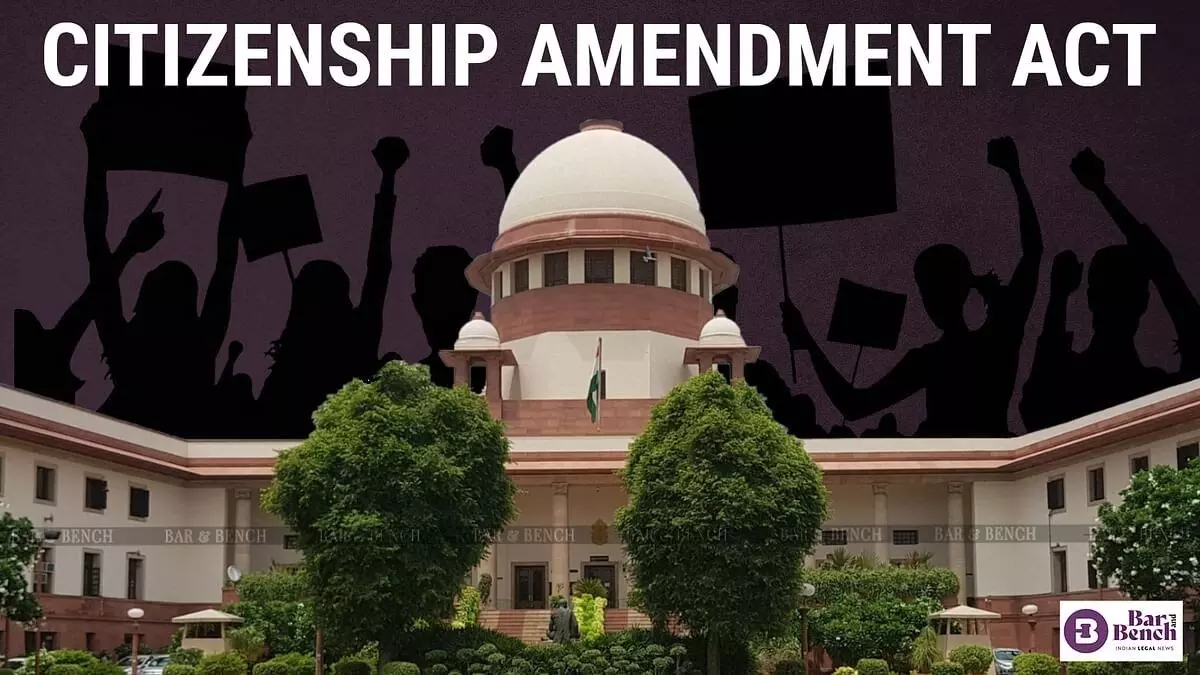
SC postpones hearing of petitions opposing CAA to Oct 31
text_fieldsNew Delhi: In order to facilitate the advancement of arguments by counsel, the Supreme Court on Monday issued a number of orders compartmentalising a group of pleas against the Citizenship Amendment Act, 2019 (CAA).
The matter was postponed by a bench consisting of Chief Justice of India UU Lalit and Justice S Ravindra Bhat, who also ordered the Central government to respond within four weeks of the compartmentalization.
"As projected by various learned counsel, the matters need to be put in different compartments so the submissions can be confined to those segments."
The Solicitor General of India (SG) was instructed to compile a comprehensive list of all cases involving the subject, which would then be segregated.
Additionally, it was mandated that the lead case be designated and convenience compilations be created following the filing of the Central government's answer.
"This part of exercises be completed after 2 weeks of the Union's responses."
With this, on October 31, 2022, the case was listed for directions.
The CAA, approved on December 12, 2019, amends the definition of "illegal migrants" in Section 2 of the Citizenship Act of 1955, Bar and Bench reported.
In Section 2(1), a new proviso has been introduced (b). According to the same, people from Afghanistan, Bangladesh, or Pakistan who are members of Hindu, Sikh, Buddhist, Jain, Parsi, or Christian communities and who have received a waiver from the central government under the Passport (Entry into India) Act of 1920 or the Foreigners Act of 1946 are not to be considered "illegal migrants." As a result, they will be qualified to seek citizenship under the 1955 Act.
The CAA expressly left the Muslim minority out of the proviso, igniting nationwide demonstrations and leading to the filing of numerous applications with the Supreme Court.
According to the petitioners who are contesting the law, the CAA discriminates against Muslims based on their faith. It has been argued that such religious segregation violates Article 14's right to quality because it lacks any justifiable discrimination.
The Supreme Court had given notice in a batch of more than 140 petitions in January 2020, amid widespread opposition to the legislation, without staying the Act.
Later, the Court made a suggestion that a Constitution Bench might hear the case, but no order was made to that effect.
The Central government had responded to the requests by claiming that the CAA is a "benign legislation" with a narrow purpose and should not be confused outside of its intended scope.























